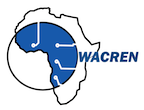Speaker
Mr
Tiwonge Banda
(Ubuntunet Alliance)
Description
For several years the subject of business models for national research and education networks (NRENs) has been at the center of discussions in the NREN community. Research and many business leaders agree that business models offer a better way of predicting business success rather than industry classifications. A business model describes the logic of how a firm creates values for its clients and for itself. It is easy to assume that NRENs, being not-for-profit in nature and whose market is given does not need to have a clearly articulated business model. However, with competition from aggressive commercial operators, NRENs are increasingly finding themselves in situations where they have to rethink their business logic.
Tertiary Education and Research Network of South Africa (TENET), the NREN of South Africa is one of the oldest NRENs in Africa. Established in the year 2000, the NREN is now almost 15 years and is the biggest NREN in Africa in terms of network coverage, volume of bandwidth and assets. Over the years, TENET has established itself as a not-for-profit business entity in South Africa with the purpose of securing, for the benefit of South African universities, technikons and associated research and support institutions, Internet and Information Technology services. This involves entering into and managing contracts with service providers and institutional users, carrying out ancillary operational functions in support of service delivery and providing other value-added services as may from time to time be needed in support of the higher educational and research sector in South Africa.
Using the Business Model Canvas developed by Alexander Osterwalder and Yves Pigneur, this paper maps TENET’s business model. The Business Model Canvas is one of the many business model generation tools that entrepreneurs use. It is a strategic tool for developing new or documenting existing business models of an organisation. It is a visual chart with elements describing a firm's customers, offer, infrastructure, and financial viability. From these four pillars come nine elements of a business model: Customer Segments, Value Proposition, Distribution Channels, Customer Relationships, Revenue Streams, Key Resources, Key Activities, Key Partnerships, and Cost Structure.
This paper presents the results of the study carried out in September 2013 mapping the business money of TENET following the above mentioned nine elements. The paper will demonstrate that a clearly defined/articulated business model for an NREN will give it a competitive edge on the market. Using limited examples of NRENs in the region, the paper will stimulate discussion on possible business models for emerging NRENs.
Primary author
Mr
Tiwonge Banda
(Ubuntunet Alliance)

